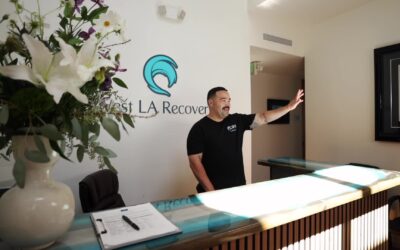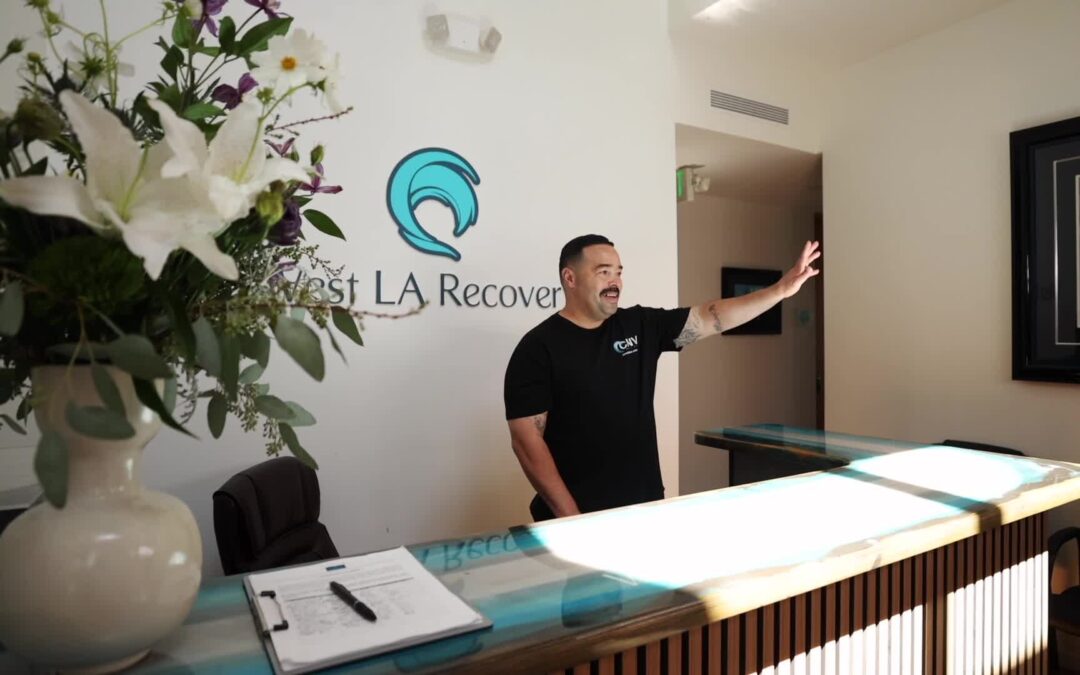The Connection Between Trauma and Addiction

Trauma and addiction are closely linked. When someone goes through traumatic experiences—such as childhood abuse, violence, loss, or other deeply distressing events—their brain and body carry those wounds with them. Many individuals resort to using substances as a means to numb emotional pain, silence intrusive memories, or simply regain a sense of normalcy.
The Statistics Speak Volumes
The numbers tell a compelling story: studies reveal that up to 75% of individuals struggling with addiction have encountered significant trauma in their lives. This isn’t a coincidence. Trauma fundamentally changes how your brain handles stress, manages emotions, and seeks relief. As a result, substances become a coping mechanism—a temporary escape from unbearable feelings.
Why This Connection Matters for Addiction Recovery
Here’s why understanding the link between trauma and addiction is crucial for recovery:
- Addressing the Root Cause: Treating addiction without dealing with underlying trauma is like putting a bandage on a deep wound—it may cover the surface, but true healing never happens.
- Preventing Relapse Triggers: Unresolved trauma remains a powerful trigger, significantly increasing the risk of relapse even after completing treatment.
- Fighting Two Battles: When trauma remains buried, individuals find themselves fighting two battles simultaneously: the addiction itself and the emotional pain driving it.
Transforming Recovery Through Trauma Understanding
Understanding how trauma impacts substance abuse changes our approach to recovery. The most effective forms of trauma treatment for addiction go beyond simply helping individuals stop using drugs or alcohol—they also facilitate healing of the wounds that made substances seem necessary in the first place.
This integrated approach leads to lasting change rather than temporary sobriety. By addressing both addiction and underlying trauma, individuals can break free from the cycle of substance abuse and create a healthier future for themselves.
Key Types of Trauma Treatment for Addiction
When you’re seeking trauma treatment for addiction, understanding the landscape of available therapies can feel overwhelming. The reality is that no single approach works for everyone—your healing journey is as unique as your experiences. Evidence-based trauma therapies have transformed how we approach recovery, offering multiple pathways to address the deep wounds that fuel substance use.
Personalized treatment plans form the foundation of effective trauma recovery. What works for one person may not resonate with another, which is why we emphasize matching therapeutic approaches to your specific needs, trauma history, and recovery goals. The best therapies for trauma recovery are the ones that speak to you and create genuine healing.
Prolonged Exposure Therapy (PE)
Prolonged Exposure Therapy guides you through gradual, controlled exposure to traumatic memories you’ve been avoiding. You might wonder how facing painful memories could help—the answer lies in how your brain processes fear. When you repeatedly confront trauma-related thoughts and situations in a safe environment, your fear response diminishes over time.
PE sessions typically involve:
- Recounting traumatic experiences in detail with your therapist
- Approaching safe situations you’ve been avoiding due to trauma
- Processing the emotions that surface during exposure
This approach proves particularly valuable in addiction recovery settings because avoidance behaviors often drive substance use. By reducing the fear and negative reactions attached to traumatic memories, you remove a significant trigger for relapse.
Cognitive Processing Therapy (CPT)
CPT challenges the unhelpful beliefs trauma creates about yourself, others, and the world. You’ve probably developed certain thought patterns to make sense of what happened—”I should have prevented it,” “I can’t trust anyone,” or “The world is dangerous.” These beliefs, while understandable, keep you stuck.
Through CPT, you learn to identify and question these trauma-related beliefs. The therapy works in both individual and group formats, allowing you to benefit from one-on-one attention or shared experiences with others. By reframing how you interpret traumatic events, you create space for genuine healing rather than numbing pain with substances.
Eye Movement Desensitization and Reprocessing (EMDR)
EMDR therapy has gained significant recognition as one of the best therapies for trauma recovery, particularly for PTSD. During EMDR sessions, your therapist guides your eye movements while you recall traumatic memories. This bilateral stimulation helps your brain process traumatic experiences naturally, similar to how it processes information during REM sleep.
You don’t need to discuss every detail of your trauma for EMDR to work. The therapy reduces emotional distress linked to traumatic memories without requiring extensive verbal processing. Trauma therapy Los Angeles centers increasingly offer EMDR, recognizing its effectiveness for clients who struggle with traditional talk therapy approaches.
Cognitive Behavioral Therapy (CBT)
CBT addresses the negative thought patterns and behaviors that trauma creates. You learn to recognize automatic thoughts that trigger distress and replace them with more balanced perspectives. The therapy emphasizes developing practical coping skills for current challenges rather than solely focusing on past events.
When integrated with addiction counseling, CBT becomes particularly powerful. You work on both the trauma-related thoughts that drive substance use and the behavioral patterns that maintain addiction. This dual focus creates lasting change in how you respond to stress and triggers.
Dialectical Behavior Therapy (DBT)
If trauma has left you struggling with intense emotions that feel uncontrollable, DBT offers specific skills for emotional regulation and interpersonal effectiveness. The therapy teaches you to:
- Tolerate distress without turning to substances
- Regulate emotions through mindfulness and self-soothing techniques
- Improve relationships by practicing effective communication and validation
By incorporating DBT into your trauma treatment plan, you gain tools to manage overwhelming feelings that may lead to substance use as a coping mechanism.
Acceptance and Commitment Therapy (ACT)
ACT focuses on accepting difficult thoughts and feelings rather than trying to eliminate them. It encourages you to commit to actions aligned with your values despite the presence of distressing emotions rooted in trauma.
Through ACT, you learn mindfulness techniques that help create distance between yourself and negative thoughts associated with past experiences. This shift allows room for healthier choices—such as engaging in activities that bring joy or connecting with supportive individuals—that contribute positively towards recovery from both addiction and its underlying traumas.
Somatic Experiencing (SE)
Somatic Experiencing takes a body-centric approach by addressing stored tension resulting from unresolved traumas within physicality itself; this method recognizes how our bodies carry memories impacting mental health conditions like addiction.
In SE sessions practitioners guide clients through gentle movements or awareness exercises promoting release from these trapped sensations enabling restoration balance between mind-body connection ultimately supporting long-term healing process necessary overcoming dependencies substances used escape pain caused by past events .
Trauma-Focused Therapy Options Specific to Los Angeles and West LA Recovery Programs

Our trauma-focused therapy Los Angeles programs bring together multiple evidence-based approaches designed specifically for the unique needs of the West LA community. We’ve created specialized California trauma recovery programs that integrate various therapeutic modalities—from expressive arts to psychedelic-assisted treatments—allowing you to benefit from comprehensive care under one roof.
PTSD counseling West LA services at our facility provide safe, judgment-free environments where you can explore your experiences openly. We understand that healing from trauma requires more than clinical expertise; it demands compassion, patience, and a space where vulnerability is honored. Our PTSD counseling in West LA connects you with therapists who specialize in trauma’s complex relationship with addiction, ensuring you receive care that addresses both conditions simultaneously rather than treating them as separate issues. For more information about our services or to get in touch, please visit our contact page.
Benefits of Integrating Trauma Treatment into Addiction Recovery
The benefits of trauma treatment in addiction recovery go beyond just managing symptoms. When you address the emotional wounds that drive substance use, you lay the groundwork for genuine transformation.
How Trauma Treatment Helps in Addiction Recovery
Different types of trauma treatment for addiction work together to:
- Rebuild your sense of self
- Help you develop emotional regulation skills that replace the numbing effects of substances
- Discover healthier coping mechanisms as you process painful memories in safe, structured ways
The Importance of Healing Root Causes
Relapse prevention at West LA Recovery focuses on healing root causes instead of just addressing surface behaviors. By working through traumatic experiences, you can eliminate the triggers that previously led you back to substances during stressful or emotionally overwhelming moments.
This approach significantly increases long-term recovery success rates because you’re not just managing cravings—you’re actually removing the underlying pain that caused them. As you let go of shame and guilt associated with past experiences, your self-worth naturally improves, allowing you to build a resilient identity necessary for lasting sobriety.
Moreover, integrating trauma treatment into addiction recovery is supported by research which shows that addressing the psychological aspects of addiction can lead to more effective treatment outcomes. The study highlights how trauma-informed care can significantly enhance recovery processes by fostering a deeper understanding of the patient’s emotional and psychological needs1.
West LA Recovery Support Services: Your Partner in Healing
We understand that healing from trauma and addiction requires more than a one-size-fits-all approach. Our West LA Recovery support services bring together expert trauma therapists West LA who specialize in multiple types of trauma treatment for addiction—from evidence-based cognitive therapies to innovative approaches like psychedelic-assisted therapy and expressive arts.
Our personalized addiction treatment Los Angeles programs create a safe space where you can explore your unique story without judgment. We combine comprehensive assessments with compassionate care, designing treatment plans that address both your addiction and the underlying traumas driving it.
Ready to begin your healing journey? Contact us today to discover how our holistic approach can support your path to lasting recovery.
FAQs (Frequently Asked Questions)
What is the connection between trauma and addiction?
Trauma often underlies addiction, significantly impacting substance abuse patterns. Addressing trauma in addiction treatment is crucial as it plays a key role in relapse and recovery success, making comprehensive care essential for long-term healing.
What are the key types of trauma treatment used in addiction recovery?
Evidence-based trauma therapies used in addiction treatment include Prolonged Exposure Therapy (PE), Cognitive Processing Therapy (CPT), Eye Movement Desensitization and Reprocessing (EMDR), Cognitive Behavioral Therapy (CBT), Dialectical Behavior Therapy (DBT), Trauma-Focused Cognitive Behavioral Therapy (TF-CBT), Expressive Arts Therapy, Jungian Therapy, and Psychedelic-Assisted Therapy. These therapies are tailored to individual needs to promote effective trauma recovery.
How does trauma-focused therapy in Los Angeles support addiction recovery?
Trauma-focused therapy options in Los Angeles, including West LA recovery programs, offer specialized counseling for PTSD and trauma. These programs provide safe, supportive environments that foster openness without judgment and combine multiple therapies tailored to the community’s specific needs.
What are the benefits of integrating trauma treatment into addiction recovery programs?
Integrating trauma treatment into addiction recovery empowers personal growth by healing past wounds, improves self-worth and emotional regulation skills, and reduces the risk of relapse by addressing root causes. This holistic approach enhances long-term recovery success.
What support services does West LA Recovery offer for individuals dealing with trauma and addiction?
West LA Recovery provides personalized addiction treatment with expert trauma therapists who deliver compassionate care tailored to each individual’s journey. Their comprehensive programs address both addiction and underlying traumas holistically, ensuring a supportive partner in healing.
How do therapies like EMDR and Psychedelic-Assisted Therapy aid in treating trauma-related addiction?
EMDR facilitates natural brain processing of traumatic memories through guided eye movements, reducing emotional distress linked to trauma. Psychedelic-Assisted Therapy, under medical supervision using substances like ketamine, aids brain healing from traumatic stress and shows promise in treating resistant PTSD symptoms within addiction recovery settings.







